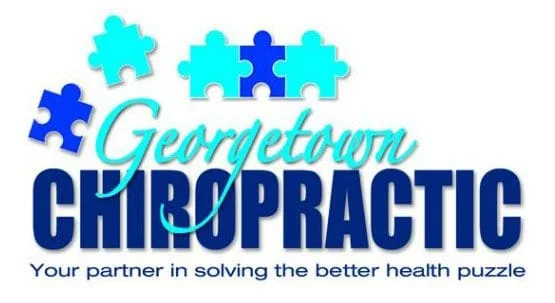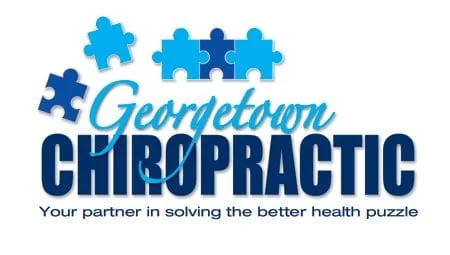Stressed out in Wilton, Weston, Ridgefield, Redding, or Georgetown? Pain and stiffness in the neck, shoulders, or upper back? There may be a connection.
- posted: Apr. 13, 2024
More and more often, people come to see me for help with chronic pain and stiffness in the neck, across the shoulders and in the upper back. They might feel tight and stiff in the upper chest. They suffer - and try to ignore - occasional “regular” headaches. They feel stressed out, even if they might not use that term.
In consultation, I learn that these people are invariably hard-working, devoting many hours a day working at a computer. In their little spare time, they are pursuing creative endeavors such as making art or music. Squeezing in family activity, working out, hiking, playing sports, and gardening as well.
The pattern I observe is that these intelligent, creative people spend many hours a day performing repetitive tasks, often in a poor ergonomic setting. The computer screen is too low, or off to the side. The desk is high, or the chair is low. Something is off, leading to a hunched over, slumped posture. They feel stuck, stressed out, and stiff. They often demonstrate shallow, inefficient breathing that deprives them of precious oxygen.
It might seem impossible, but the simple act of breathing can be performed in a way that is bad for our mental, physical, and emotional health. Crazy, right? We all know how to breathe! We’ve been doing it since that legendary first cry as an infant, drawing in precious oxygen into our bodies as we began life. Well, baby you certainly knew how to breathe properly, but grown-up you might have forgotten.
Most of us breathe shallowly, using only a fraction of our lung capacity. This shallow breathing can lead to many problems over time. Some are:
* Muscle Strain: Shallow breathing often involves using the muscles of the chest and neck rather than the diaphragm. This can lead to strain in these muscles, causing discomfort or pain over time.
* Reduced Oxygen Intake: Shallow breathing limits the amount of oxygen that reaches your bloodstream. Insufficient oxygen can lead to a buildup of carbon dioxide in the body, causing symptoms like dizziness, headaches, and even chest pain.
* Stress and Tension: Shallow breathing is often associated with stress and tension. Chronic stress can lead to muscle tension, which may manifest as pain or discomfort in the chest, neck, or shoulders.
* Impaired Function of Organs: Inadequate oxygen intake due to shallow breathing can affect the functioning of various organs, including the lungs, heart and brain. Over time, this can contribute to conditions like cardiovascular disease or cognitive impairment, which may cause pain or discomfort. Our most important organs crave oxygen, and shallow breathing deprives them of it.
Correcting ergonomic problems is easy. Just ask me, and I can teach you how to set up your computer and chair so that you minimize the strain on your body.
It’s harder to develop the good habit of taking frequent, brief breaks throughout the workday. Every ten or fifteen minutes, take ten or fifteen seconds to move some part of your body. Look up, look to the left, look to the right, shrug your shoulders, wiggle your back. Look at something far away. It almost doesn’t matter what you do, so long as you stop looking at the screen with your fingers on the keyboard/mouse. Easy to do, but unfortunatly hard to remember. Like most good habits.
This brings me to conscious breathing.
Conscious breathing encourages us to take deeper, fuller breaths, which helps to expand the lungs, increase oxygenation, and improve respiratory efficiency. Regular practice can enhance lung capacity and respiratory muscle strength, benefiting overall respiratory health.
We rarely stop to consider the profound impact that conscious breathing can have on our health and well-being. Yet, it is one of the most accessible and potent tools we have for improving our physical, mental, and emotional health.
Conscious breathing, also known as mindful breathing or deep breathing, involves intentionally paying attention to each breath as it flows in and out of the body. Unlike the shallow, automatic breathing that often accompanies stress and anxiety, conscious breathing is deliberate, slow, and rhythmic. It engages the diaphragm and activates the body's relaxation response, promoting a sense of calm and balance. It might put a smile on your face.
So, what exactly are the benefits of incorporating conscious breathing into our daily lives?
Stress Reduction and Relaxation
In Wilton, Weston, Ridgefield, Redding and Georgetown, stress and pain has become a constant companion for many of us. Chronic stress can take a toll on both our physical and mental health, contributing to conditions such as pain, high blood pressure, anxiety, and insomnia. Conscious breathing acts as a natural antidote to stress by triggering the body's relaxation response. By focusing on the breath, we can quiet the mind, soothe frazzled nerves, and cultivate a sense of inner peace.
In a world dominated by distractions, cultivating mindfulness has become increasingly important. Conscious breathing serves as a powerful anchor for mindfulness, allowing us to bring our attention fully to the present moment. By focusing on the sensations of each inhale and exhale, we can quiet the chatter of the mind, heighten our awareness, and deepen our connection to the here and now. This mindfulness permeates every aspect of our lives, fostering greater clarity, focus, and presence.
Stress Management and Emotional Regulation
Our breath is intimately connected to our emotions. When we experience stress, fear, or anxiety, our breathing becomes shallow and rapid, signaling to the body that we are in "fight or flight" mode. Conscious breathing helps to counteract this by activating the parasympathetic nervous system, which promotes relaxation and calms the body's physiological reactions to stress. By regulating our breath, we can regulate our emotions, creating a greater sense of stability and resilience in the face of life's challenges.
Improved Sleep Quality
Quality sleep is essential for overall health and well-being, yet many of us struggle to get the rest we need. Conscious breathing can be a powerful tool for improving sleep quality and promoting relaxation before bedtime. By incorporating deep breathing exercises into our nightly routine, we can signal to the body that it's time to wind down, quiet the mind, and prepare for restful sleep. The rhythmic nature of conscious breathing can help to soothe the nervous system, reduce nighttime arousal, and promote deeper, more restorative sleep.
In conclusion, conscious breathing is a simple yet profound practice that offers a myriad of benefits for our health and well-being. By taking the time to cultivate awareness of our breath, we can reduce stress, improve lung function, enhance mindfulness, regulate emotions, and promote better sleep. So, the next time you find yourself feeling overwhelmed or anxious, take a moment to pause, close your eyes, and simply breathe, fully and deeply, like a little baby You may be surprised by the transformative power of something as fundamental as the breath.
Monday
9:00 am - 7:00 pm
Tuesday
9:00 am - 7:00 pm
Wednesday
9:00 am - 7:00 pm
Thursday
9:00 am - 7:00 pm
Friday
By appointment only
Saturday
9:00am - 1:00pm
Sunday
Closed

